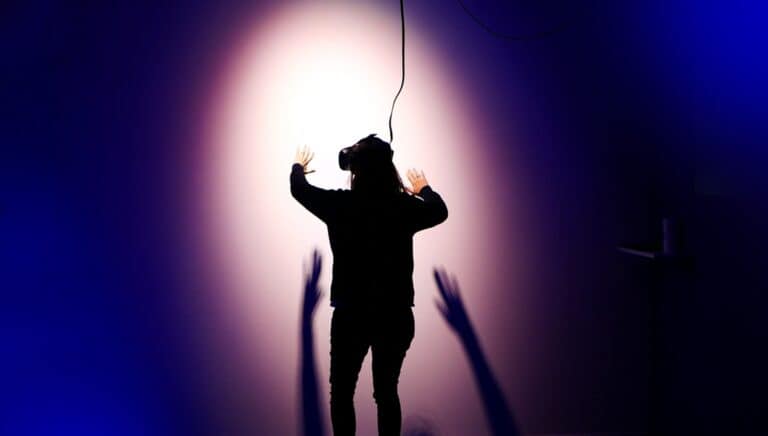
Prof. Valerio De Stefano, PhD, is the BOFZAP Professor of Labour Law at KU Leuven, the University of Leuven, Belgium
In 2018, the news reported that some assembly line workers had been asked to wear caps that monitor brain waves in order for managers to adjust the pace of production and workflows. Some observers raised doubts on the reliability of these tools, and even cast doubts on their actual functioning, but it is undeniable that forms of mental surveillance are increasingly coming to our workplaces. “Sociometric badges”, wearable tools tracking emotions and stress by collecting data on heartbeats and the tone of voice, for instance, are spreading in the United States.
Most of these practices should be urgently restricted. Losing one’s mental privacy arguably threatens one of the core elements of being human. If this occurs at the workplace, where workers are already subject to quasi-dictatorial managerial prerogatives, the consequences could be disastrous. Yet, no significant attention has been devoted to how neurotechnologies, and other forms of mental surveillance, may impact on workplaces.
Besides brain waves monitoring and emotional tracking, facial scans are also widely used in recruitment, with artificial intelligence analyzing “how a person’s face moves” to detect ”how excited someone seems about a certain work task or how they would behave around angry customers”. Research projects exploring how to connect brains to technological devices are underway that could have detrimental consequences for workers.
The more these practices progress, the more labour scholars should raise concerns about them. Experimentations and implementation of these practices need data, and workplaces are perfect data mines. If regulation is not brought up-to-speed, the future world of work risks being one where employers require employees to use tools that collect data on their brain activity to engage in a unrestrained quest for productivity, to predict their behavior and even to monetize on their data by making them accessible to third parties.
Given the imbalance between employers and workers, there is limited possibility for workers to refuse such surveillance without risking to lose their jobs. This is why European countries have promoted governance of these practices through collective bargaining and workers’ representatives’ involvement. The EU General Data Protection Regulation provides that EU Member States may introduce, by law or by collective agreements, “specific rules to ensure the protection of the rights and freedoms in respect of the processing of employees’ personal data in the employment context”.
Much more heed, however, needs to be paid to “neuro-surveillance at work”. Neuroscientist Marcello Ienca, for instance, called for the recognition of new human rights to face the rise of neurotechnology, including rights to mental privacy and integrity.
In 2019, the OECD adopted the first international legal instrument on neurotechnology. It defines personal brain data as “data relating to the functioning or structure of the human brain of an identified or identifiable individual that includes unique information about their physiology, health, or mental states”.
This Recommendation sets out crucial principles that should govern the development of neurotechnology. It also calls relevant actors to “avoid harm, and show due regard for human rights and societal values, especially privacy, cognitive liberty, and autonomy of individuals”, to actively involve stakeholders and to “safeguard personal brain data and other information gained through neurotechnology”. In this regard, it recommends to “promote policies that protect personal brain data from being used to discriminate against or to inappropriately exclude certain persons or populations, especially for commercial purposes or in the context of legal processes, employment, or insurance”.
The Recommendation is an initial step. But it is not enough to reduce risks connected to emotional- and neuro-surveillance at work. This is not just about banning discriminatory collection and use of brain data at work or making them “fairer” to avoid people being excluded from work opportunities – employers and managers should not be able to “read” workers’ minds. Protection of mental privacy is essential to counter the most invasive forms of “limitless worker surveillance”.
Recourse to neurosurveillance should be limited to truly indispensable cases. Just like the Employee Polygraph Protection Act of 1988 (EPPA) prevents employers from using lie-detector tests on job applicants and employees (with very few exceptions), brain data collection and use should be banned from the world of work, and so should any data processing aimed at tracking and scanning emotions, feelings and mental states.
Scholarship and advocacy are needed to promote a “right to remain humans at work”, pivoted around the mental privacy protection, before forms of emotional and mental scrutiny become commonplace. Never before has it been so urgent to reiterate that not everything that is technically possible is lawful or even desirable. Workers deserve to be freed from dystopian scenarios; they should not just be offered a fairer dystopia.










Daily News & Commentary
Start your day with our roundup of the latest labor developments. See all
October 31
DHS ends work permit renewal grace period; Starbucks strike authorization vote; captive-audience ban case appeal
October 30
Sweden’s Tesla strike enters its third year; Seattle rideshare drivers protest Waymo’s expansion in the city.
October 29
9th Circuit rejects challenge to NLRB's constitutional structure; preemption challenges to state labor peace statutes
October 28
Two federal unions oppose CBA cancellations, another federal union urges Democrats to end the government shut down, and Paramount plans for mass layoffs
October 27
GM and Rivian announce layoffs; Boeing workers reject contract offer.
October 26
California labor unions back Proposition 50; Harvard University officials challenge a union rally; and workers at Boeing prepare to vote on the company’s fifth contract proposal.